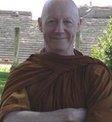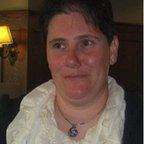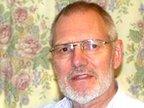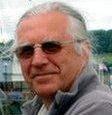Celibate life: Readers share their stories
- Published
A recent article about whether celibacy is a possible way of life prompted readers to send in their own experiences.
Following revelations about the sexual indiscretions of Cardinal Keith O'Brien, the article questioned how feasible it is to live a celibate life. Many people wrote in to share their own stories and experiences of celibacy, abstinence and otherwise living without sex.
Here is a selection.

I am English and have been a Buddhist monk (bhikkhu) for 22 years, and celibate for a lot longer. I was earlier married for many years. I am not impotent, and enjoyed a relationship. Celibacy is not for everyone, but this can also be said for any life style. However I have found the solitary celibate life, when embraced fully, offers a whole different relationship toward oneself and others. I like the play on the word - "alone-ness" and "a-oneness". This has to be seen through experience from the inside. It is very easy for celibacy to be criticised from the outside looking in. In truth if I could choose my life again I would choose to be celibate from youth. Vimalo (Bhikkhu), Kanduboda ,Sri Lanka

Of course it's possible - I'm living this (abstinence) right now as a young Catholic man. It's difficult, but sex drive is not like a bodily need for food, water or sleep. If you don't have sex or masturbate, you won't just keel over and die. I am trying to live according to the basic Catholic standard of sexual purity (no sex before marriage, no fornication) and have kept this up for the last six months. I am much happier with this part of my life under control than I was before. I may one day marry and, if I do, sex will be a good part of that - something great to share with my wife which can also bring about new life. This is a difficult call and sexuality is not something easily mastered but don't assume that, since you can't imagine a celibate life, it is therefore impossible. Stephen Bick, Lansing, US

As a celibate Sister myself I feel it is a grace of God and I would not wish to be anything else. Sexuality is a part of the human person, and one cannot give it up and remain human. However, sexuality is one aspect of human creativity, and the impulses of sexuality can be managed and transformed, so that a new state, which transcends sexuality is developed. This takes time and hard work, and loneliness can cause a breakdown in the practice from time to time. Sister Petra Clare, Inverness, Scotland

I am a pretty 46-year-old woman, single and I haven't had sex in almost four years. When I was in my 20s and 30s I had enough sex to last three lifetimes. I rarely went a week without finding someone to shack up with. Then I got older and more picky and I found that most of the guys just weren't worth the time or the energy. The whole thing got old. I never found anyone compatible with me and I certainly was never willing to compromise my personality and my priorities for a man, so there you have it. I'm actually happier because I don't date anymore and I'm free to enjoy life with myself. I have a great relationship with myself and my life. Sex really isn't all that. Julie Moskal, Chicago, Illinois, US

I began training for the priesthood in 1979. I was ordained a deacon in 1984 and a priest in 1985. I loved the life and the work. I ultimately turned my back on the church in order to live with a woman and have children. I still believe that a priest has to be celibate in order to be free to truly serve the the people of God. Lyndon Brown, Orpington, Kent

As a single celibate woman, I can attest to the greater abundance of time and energy to devote to the things of God without a traditional family. However, it is my choice, not a burden imposed upon me by an institution. I know many women (and men) in my position who would probably be more willing to speak out if society didn't stigmatize our choices as "abnormal". We get tired of being asked if we are gay or "what is wrong with you" that we are not married. However the Roman Catholic Church has truly harmed the role and image of its clergy by imposing such difficult requirements on all its spiritual leaders. Esther Berg, Pangasinan, Philippines

I'm a 36-year-old, single, and celibate heterosexual. At 18 I decided that I wanted to spend my life dedicated to working for God. I will agree celibacy isn't a easy life to follow, there are daily temptations. Before choosing this way of life I had no sexual contact with the opposite sex. Seeing family and friends marry and start a family is often the time that the loneliness kicks in. Within the role as a missionary that I have had over recent years - both here in the UK and overseas - having a family would be difficult. The truly hardest thing to deal with is the intolerance that assumes I am either lying (which on many occasions I've been told) or that I'm gay and need to admit it. I really don't know how my celibate or abstaining male friends deal with the constant abuse and comments about their possible character. It is more than enough being a 30-something female. But at least for a female there seems to be a little, if not much, understanding for the choice. Cas, Leicester

It is possible to live a completely celibate life, no sex, no masturbation. I did so until my marriage a month after my 28th birthday. My wife and I were both virgins on our wedding night. We have enjoyed sex since that time, apart from periods of abstinence by agreement for times of fasting and prayer. Jesus said that celibacy is a gift, not something to be imposed, a choice we make whether it be for life or a period of time. It is a pity that abstinence is not something people consider today, especially the young. Gerry Davies, Malvern, Worcestershire

I am an ex-Catholic priest so this discussion is of great interest to me. I joined the seminary to train to be a priest when I was 19 years old. I wanted to be a priest because I felt the organisational structure of the Church would help me pursue my desire to be of service to the most vulnerable in society. Celibacy was something I would just have to accept to achieve this goal. Eventually I realised that celibacy was not for me, but I continued to struggle with it while becoming a priest and I remained a priest for seven years. Finally, I had to choose between remaining a priest and compromising on celibacy, or leaving the priesthood and marrying my "significant other". I decided to leave and it was a difficult decision to take because of societal pressures and family pressures. Hard as it was it has been well worth it. Thomas Toscano, Harrow

I am a celibate male heterosexual Buddhist and very happily so. About 10 years ago I discovered that, although I have enjoyed sex and having a "significant other" in my life, I much preferred the freedom from emotional entanglement that a celibate life provides. I consider it an entirely healthy choice as long as it is made voluntarily and not as a condition for membership of any order. Manjuvajra, Salford, UK

I am 53 years old and I have been celibate for more than 30 years, nothing to do with religion and not through choice, it just happened that way. I had sexual intercourse once when I was 19 and the opportunity has never presented itself for me to repeat the experience. I'm not saying that I don't think about sex, it's just that I don't dwell on the fact that I have not had any since I was a teenager and, until now, I have never actually commented about it to anyone. Derek Cole, Glenrothes, Fife

Some people just don't have any interest in sex, not because of repression or guilt, but simply because that's how we're wired. At 24, I'm one of them - I've never been ashamed of sex and will happily talk about anything from masturbation to kink and polyamory without embarrassment. However, I'm asexual - I'm not sexually attracted to anyone. While a minority of asexuals are fine having sex, the thought of having sex myself is mildly repulsive - in much the same way that my lesbian friends are repulsed by the thought of having sex with men. Forcing people to be celibate who aren't naturally inclined to be so is damaging and unhealthy - but insisting that everyone has to have sex to be psychologically healthy is also damaging to those of us who are far happier without it. I know a lot of asexuals who've forced themselves into sex they didn't want because they thought they were broken and abnormal. And when I start my teacher training course in September, I'm anxious that anyone discovering my sexuality will leap to erroneous conclusions based on the assumption that not having sex causes scandals like those seen in the Catholic Church. Helen, Manchester, UK